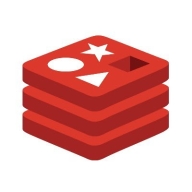

MongoDB and Redis are two leading databases competing in the realm of NoSQL storage solutions. Based on various parameters, MongoDB seems to have the upper hand due to its flexibility and comprehensive features suitable for complex data handling.
Features: MongoDB Enterprise Advanced excels with features like robust security configurations, automatic failover, JSON storage, and indexing capabilities that ensure high scalability and support complex data operations. Its sharding functionality further enhances performance in distributed environments. Redis, on the other hand, is known for its speed in caching and session management due to its in-memory data store. Its simplicity in key-value operations and built-in data structures makes it ideal for real-time analytics.
Room for Improvement: MongoDB could improve security integrations, strengthen its indexing capabilities, and offer better documentation and BI tool integrations. Users also express a desire for enhanced relational capabilities and advanced search functions. Redis would benefit from enhanced cluster management, a GUI for simpler administration, and more enterprise-grade security features. Expanding its documentation could also smoothen the setup process.
Ease of Deployment and Customer Service: MongoDB offers versatile deployment options like on-premises and cloud configurations, complemented by a strong user community and enterprise support. Although users depend on community resources for assistance, the robust deployment flexibility is a plus. Redis, with its simpler architecture, often requires less technical support but lacks the extensive community engagement seen with MongoDB. Its effectiveness in public cloud deployments is notable, though there is a call for improved cluster management.
Pricing and ROI: MongoDB provides a free Community Edition and a paid Enterprise Version, valued for cost-effectiveness, though some find the enterprise licensing costly. The ROI depends on specific use cases and deployment scenarios. Redis, as an open-source solution, does not charge for basic software, aligning well with cost-saving initiatives. Both solutions offer reasonable ROI, with MongoDB’s comprehensive capabilities potentially justifying a higher investment.
Actually, with MongoDB, it's difficult to calculate the return on investment; it's too expensive for our use.
CosmoDB is better for auto-scale.
Overall, on a scale of one to ten, I would rate MongoDB an eight; it's mostly because we're still running a monolithic environment on old hardware, so there are some limitations with read-write access.
MongoDB is highly scalable.
Data migration and changes to application-side configurations are challenging due to the lack of automatic migration tools in a non-clustered legacy system.
Redis is fairly stable.
While solutions for other databases like SQL or PostgreSQL already exist, MongoDB requires additional integrations for developing AI solutions.
We have not contracted the security options in our contract because they're too expensive; thus, we implement just encrypted databases and not the security pack.
Data persistence and recovery face issues with compatibility across major versions, making upgrades possible but downgrades not active.
We have to pay approximately 2,000 euros per month for MongoDB.
We use the free version of MongoDB, so there are no licensing costs.
Since we use an open-source version of Redis, we do not experience any setup costs or licensing expenses.
It offers flexibility in schema adaptation, allowing us to change the schema and add new data points.
MongoDB has definitely helped us improve our network monitoring and reporting dashboard.
MongoDB's dashboards offer more functionalities and allow you to create a dashboard with MongoDB database data.
It functions similarly to a foundational building block in a larger system, enabling native integration and high functionality in core data processes.
| Product | Market Share (%) |
|---|---|
| MongoDB Enterprise Advanced | 16.7% |
| Redis | 8.8% |
| Other | 74.5% |


| Company Size | Count |
|---|---|
| Small Business | 35 |
| Midsize Enterprise | 13 |
| Large Enterprise | 37 |
| Company Size | Count |
|---|---|
| Small Business | 11 |
| Midsize Enterprise | 3 |
| Large Enterprise | 8 |
MongoDB Enterprise Advanced is a comprehensive platform renowned for its scalability, user-friendliness, and high performance, underpinned by its flexible document-based storage and open-source model. JSON compatibility, clustering, and security elevate its standing among professionals.
The platform facilitates efficient data management through developer-friendly tools and a strong aggregation framework. MongoDB’s no-schema requirement, supported by community expertise, underlines its adaptability. While its sharding capabilities and affordably support large data volumes, there are aspects such as security enhancement and enterprise tool integration that need attention. Indexing and query optimization pose challenges, alongside high costs. Improvements in analytics and UI could advance its infrastructure further.
What are the key features of MongoDB Enterprise Advanced?Industries leverage MongoDB Enterprise Advanced for significant roles in data storage within IoT platforms, healthcare apps, public service monitoring, and big data analytics. Companies in logistics and telecommunications find it instrumental for business process management and video content management, benefiting from its seamless integration and unstructured data support.
Redis offers high-speed, in-memory storage, renowned for real-time performance. It supports quick data retrieval and is used commonly in applications like analytics and gaming.
Renowned for real-time performance, Redis delivers high-speed in-memory storage, making it a favorite for applications needing quick data retrieval. Its diverse data structures and caching capabilities support a broad array of use cases, including analytics and gaming. Redis ensures robust scalability with master-slave replication and clustering, while its publish/subscribe pattern renders it reliable for event-driven applications. The solution integrates smoothly with existing systems, minimizing performance tuning needs. Although documentation on scalability and security could be improved, Redis remains cost-effective and stable, commonly utilized in cloud environments. Enhancing integration with cloud services like AWS and Google Cloud and refining GUI may improve usability.
What are the key features of Redis?Redis finds application across industries for tasks like caching to improve application performance and speed, minimizing database load. It enables real-time processing for session storage, push notifications, and analytics. As a messaging platform, Redis handles high traffic and supports replication and clustering for cross-platform scalability.
We monitor all NoSQL Databases reviews to prevent fraudulent reviews and keep review quality high. We do not post reviews by company employees or direct competitors. We validate each review for authenticity via cross-reference with LinkedIn, and personal follow-up with the reviewer when necessary.